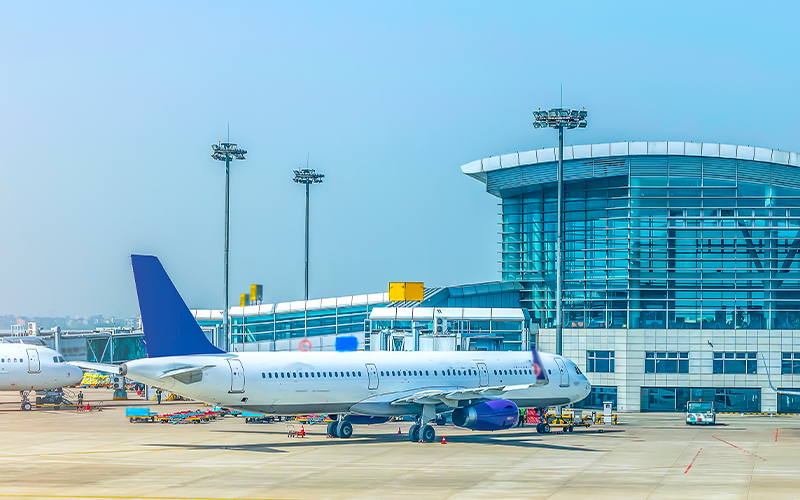European airports faced major chaos this weekend after a European airport cyberattack disrupted check-in systems across multiple countries. A cyber-related incident hit Collins Aerospace’s cMUSE platform, forcing airports like Heathrow, Berlin Brandenburg, and Brussels Zaventem to shut down self-service kiosks and switch to manual processing.
The impact spread quickly:
-
Brussels Zaventem cancelled 45 out of 257 departing flights.
-
Passengers experienced delays of up to 90 minutes.
-
Airlines struggled to manage frustrated travellers and keep flights on schedule.
This was more than a temporary glitch. The cyberattack exposed how dependent air travel has become on centralised IT systems and how fragile those systems are when attacked.
Why the Europe Airport Cyberattack Matters
Modern air travel runs on efficiency. Passengers rely on automated kiosks, bag drops, and digital boarding systems. When these fail, airports grind to a halt. The Europe airport cyberattack revealed three key issues:
1. Centralised Weak Points
cMUSE makes operations faster, but its failure caused massive disruption across multiple airports.
2. Cloud Dependency Risks
Airports running the cloud version of cMUSE had no fallback when servers went down.
3. Direct Passenger Impact
Delays, cancellations, and long queues hurt both travellers and airlines.
Regulatory Push for Stronger Cybersecurity
Europe is responding with tighter rules.
-
NIS2 Directive (October 2024): Expands “critical infrastructure” to cover IT suppliers serving airlines and airports. Vendors will face stricter cybersecurity obligations.
-
EASA Part-IS rules: Introduce higher cybersecurity standards for shared aviation systems and supply chains.
These measures aim to prevent future incidents, but they aren’t yet fully implemented. Until then, aviation remains exposed to cyber risks.ks
What Travellers Should Do
While travellers cannot control cyberattacks, they can prepare for disruptions:
-
Arrive early to allow extra buffer time.
-
Rely on airline apps for real-time updates.
-
Expect manual workarounds such as paper boarding passes.
-
Stay flexible and rebook quickly if your flight is cancelled.
What This Means for Your Business
Shared services = shared risk. If your company depends on cloud or third-party infrastructure, a single breach can cascade through your operations.
-
Regulators are watching. Europe’s NIS2 directive expands what counts as critical infrastructure, and penalties for non-compliance are steep.
-
Manual fallback isn’t a strategy. Airport staff were forced to improvise because resilience failed. Your business needs more than paper backups.
-
If it can happen to Europe’s busiest airports, it can happen to an organisation.
Why EDR + ASAP Are the Must-Have Duo
EDR (Endpoint Detection & Response):
Real-time visibility and proactive defence at the endpoint level, the most common entry point for attackers. Suspicious behaviour gets detected and neutralised before it escalates.
ASAP (Automated Security Awareness Platform):
Turns every employee into a human firewall. With phishing simulations, bite-sized training, and behaviour analytics, it builds a security-first culture where attackers can’t exploit human error, the leading cause of breaches.
Together, EDR and ASAP provide a layered defence: technology stops the threats, and people stop the mistakes.
The High Price of Waiting
-
Reputation damage: Customers remember downtime and lost data.
-
Financial losses: Outages cost thousands, or millions, per hour.
-
Regulatory fines: Non-compliance with NIS2 and data-protection laws is costly.
-
Competitive disadvantage: Companies with proven resilience win contracts. Laggards lose them.
Act Before You’re the Next Headline
You can’t predict when attackers will strike. You can only decide how prepared you’ll be when they do.
Here’s what to do right now:
-
Schedule an EDR consultation. Get your endpoints monitored and threats neutralised in real time.
-
Launch an ASAP program. Train every employee to recognise phishing and social-engineering attacks.
-
Audit your resilience. Test disaster recovery plans and close the gaps before someone else finds them.
Don’t Wait Until It’s Too Late
Europe’s check-in meltdown is a warning shot. If global airports can be crippled, no organisation is immune.
👉Book your free cybersecurity consultation today. Let’s secure your business with EDR and ASAP, because once attackers make their move, prevention is no longer an option.


